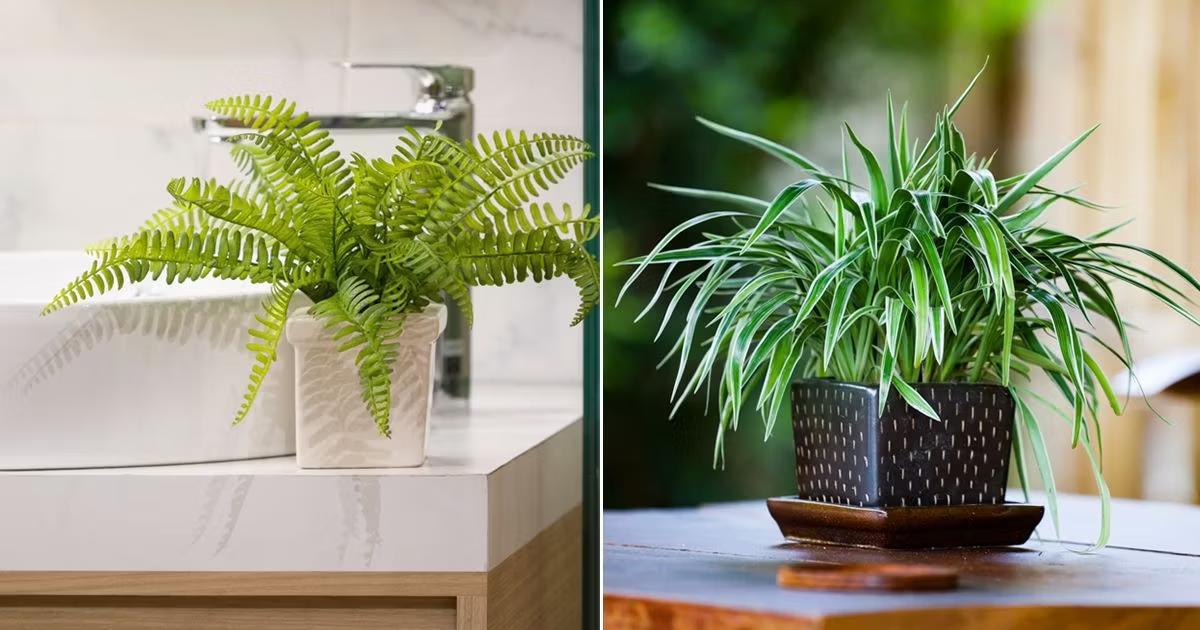Air Purifying Plants: The Green Guardians for Your Home and Office

In our increasingly urban lives, where air quality is a growing concern, finding natural ways to cleanse the air we breathe has become essential. Enter air purifying plants—a perfect blend of aesthetics and functionality. Not only do these plants add a refreshing touch to your indoor spaces, but they also work tirelessly to remove toxins, improve humidity, and boost overall well-being. At Nurserybala, we offer a wide range of these green warriors to help you create a healthier living environment.
How Do Air Purifying Plants Work?
Plants naturally absorb carbon dioxide and release oxygen during photosynthesis. However, some special varieties go beyond this basic function by filtering out harmful chemicals such as benzene, formaldehyde, and ammonia from the air. These toxins are often emitted from household products like paints, cleaners, and furniture. Air purifying plants absorb these toxins through their leaves and roots, acting as natural air filters.
Top Air Purifying Plants to Bring Home
Here are some must-have air purifying plants that you can easily integrate into your home or office decor:
1. Snake Plant (Sansevieria)
Known as the “mother-in-law’s tongue,” this plant is famous for its ability to filter out formaldehyde and benzene. It also releases oxygen at night, making it an excellent choice for bedrooms. Snake plants are low-maintenance and thrive in low light, making them perfect for busy households or office corners.
2. Peace Lily (Spathiphyllum)
The Peace Lily not only looks elegant with its white blooms but is also a powerful air purifier. It excels at removing indoor pollutants like ammonia and formaldehyde. This plant thrives in low to medium light and needs regular watering, making it an easy-care option.
3. Aloe Vera
Aloe Vera is more than just a medicinal plant. It also purifies the air by filtering out formaldehyde and benzene, often found in household cleaners. Aloe thrives in bright light and requires minimal watering, making it perfect for sunny windowsills.
4. Spider Plant (Chlorophytum comosum)
A classic choice for air purification, the Spider Plant effectively removes carbon monoxide and other harmful toxins from the air. It’s also pet-friendly, so if you have cats or dogs, this plant is a safe option. The Spider Plant is low maintenance and grows well in indirect sunlight.
5. Areca Palm (Dypsis lutescens)
For those who love tropical vibes, the Areca Palm is a fantastic air-purifying option. It can filter out xylene and toluene while also acting as a natural humidifier. With its beautiful, feathery fronds, this plant makes a stunning addition to any room.
6. Boston Fern (Nephrolepis exaltata)
Boston Ferns are not only beautiful but also effective at removing formaldehyde and xylene from the air. These plants prefer indirect light and high humidity, making them ideal for bathrooms or kitchens.
Benefits of Having Air Purifying Plants
1. Improved Air Quality
The most obvious benefit is cleaner air. These plants work around the clock to filter out toxins, allergens, and pollutants, ensuring that the air you breathe indoors is much fresher.
2. Enhanced Aesthetics
Whether you’re decorating your living room, office, or bedroom, these plants can enhance the visual appeal of your space with their greenery and sometimes, flowers.
3. Better Mental Health
Several studies suggest that having plants around can reduce stress, anxiety, and even depression. Air purifying plants can create a serene atmosphere that encourages relaxation and positivity.
4. Increased Productivity
Indoor plants have been shown to boost concentration and creativity. Whether you’re working from home or at an office, air purifying plants can increase your focus and productivity levels.
How to Care for Your Air Purifying Plants
- Light: Most air purifying plants thrive in indirect or low light, though some (like Aloe Vera) prefer bright, direct light.
- Watering: Overwatering is a common mistake. Ensure the soil is dry to the touch before watering again.
- Humidity: Plants like Boston Ferns and Peace Lilies prefer humid environments. Misting them occasionally can help.
- Repotting: When you notice roots outgrowing the pot, it’s time to repot. This ensures the plant has room to grow and continue purifying the air.
Conclusion
Bringing air purifying plants into your home or office is a natural, low-maintenance way to improve the air quality while adding beauty to your environment. At Nurserybala, we provide a wide range of air purifying plants that cater to every taste and space. Whether you’re a seasoned plant parent or just starting, there’s an air-purifying plant for you. Visit our store today to explore these green guardians and take the first step toward a healthier lifestyle.
Explre Nurserybala for your air purifying plant needs and transform your space into a healthier, more vibrant place to live and work!


















